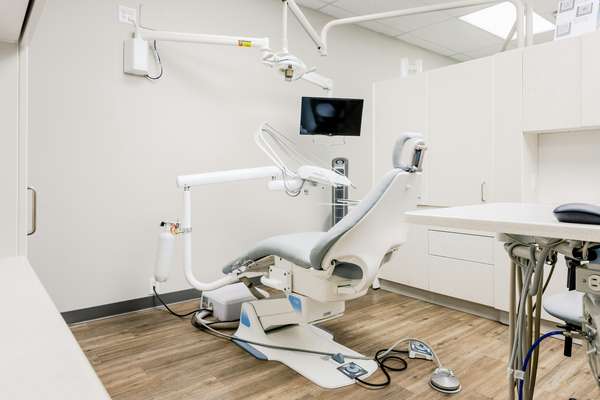
When you settle into that familiar dental chair, the last thing on your mind should be whether the instruments have been properly cleaned.
Yet for patients of a long-established Mortdale dental practice, that trust may have been misplaced for decades.
NSW Health has issued an urgent warning for current and former patients of Dr Safuan Hasic, also known as Steven Hasic, whose Victoria Avenue practice has been permanently closed due to serious hygiene failures.
The state's health authorities discovered infection control breaches and poor sterilisation practices that may have put patients at risk of contracting blood-borne viruses including HIV, hepatitis B, and hepatitis C.
Four decades of practice, now under scrutiny
Dr Hasic's registration was suspended by the Dental Council of NSW last month, bringing an abrupt end to a practice that had been operating since the 1980s. The lengthy timeframe means potentially thousands of patients could be affected, making this one of the most significant dental health alerts in recent NSW history.
'Any current or former patients of Mr Hasic should see their GP as soon as possible and ask to be tested for blood borne viruses as a precautionary measure'
NSW Health has issued a closure order for the dental surgery in Mortdale, and authorities are working with the Dental Council of NSW and Health Care Complaints Commission to investigate the matter further.
What went wrong with infection control?
While health authorities haven't released specific details about the breaches, infection control in dental practices typically involves strict protocols for cleaning and sterilising instruments between patients. When these systems fail, dental tools that have been in contact with one patient's blood or saliva can potentially transmit infections to subsequent patients.
Dr Vicky Sheppeard, Director of South Eastern Sydney Local Health District's Public Health Unit, explained that 'blood borne viruses can be spread between clients on dental instruments where there isn't stringent infection control.'
The risk, while described as low, is serious enough to warrant immediate action. Blood-borne viruses can remain dormant for years without symptoms, making early detection crucial for effective treatment.
Understanding blood-borne virus testing
If you were a patient of Dr Hasic, your GP will likely recommend tests for:
- Hepatitis B: A liver infection that can become chronic
- Hepatitis C: Another liver infection, now highly treatable
- HIV: Affects the immune system but manageable with modern treatments
Testing typically involves a simple blood test, and results are usually available within a few days to a week.
The challenge of tracking patients
One of the most concerning aspects of this situation is NSW Health's admission that they cannot directly contact many of Dr Hasic's former patients. The department has been able to identify only a small number of patients treated at the practice, leaving a large proportion unable to receive direct health advice.
This highlights a broader issue in healthcare record-keeping and patient tracking systems. For many older Australians who may have been visiting the same dentist for decades, particularly those who paid in cash or whose records weren't digitally maintained, there may be no easy way for authorities to reach them.
What you need to do if you were a patient
Action steps for former patients
- See your GP immediately and mention your connection to Dr Hasic's practice
- Request testing for hepatitis B, hepatitis C, and HIV
- Even if you've had recent negative tests, discuss whether repeat testing is needed
- Keep all test results and follow up with your doctor about the timing of future tests
- Contact NSW Health on 1300 066 055 for specific advice
The testing process is straightforward, but timing matters. Some blood-borne viruses have 'window periods' where they might not show up in initial tests, so your doctor may recommend follow-up testing over several months.
NSW Health has created a dedicated information page for affected patients, and there's a specific hotline (1300 066 055) for those seeking advice about testing and next steps.
Your rights as a patient
While the immediate focus is on health testing, patients may also want to understand their legal rights. In cases where healthcare providers fail to meet professional standards, patients may be entitled to compensation for medical costs, anxiety, and other impacts.
The Health Care Complaints Commission will be investigating this matter, and their findings could provide grounds for compensation claims. However, the priority right now should be getting tested and ensuring your health.
How to choose a safe dental practice
This situation raises important questions about how to evaluate dental practices. While most Australian dentists maintain excellent hygiene standards, here are some things to look for:
- Visible cleaning and sterilisation equipment
- Staff who wash hands and change gloves between patients
- Single-use items that are opened in front of you
- A practice that's willing to discuss their infection control procedures
- Current registration with the Australian Health Practitioner Regulation Agency (AHPRA)
Moving forward with confidence
Dr Sheppeard emphasised that there are effective treatments for hepatitis B, hepatitis C and HIV, meaning that even if testing reveals an infection, modern medicine offers hope and management options that weren't available decades ago.
The dental profession in Australia is generally well-regulated, and incidents like this, while serious, are rare. The swift action by NSW Health and the Dental Council demonstrates that oversight systems are working to protect patients when problems are identified.
Did you know?
Did you know?
Blood-borne viruses can remain undetected for years without symptoms, which is why testing after potential exposure is crucial even if you feel perfectly healthy. Early detection leads to better treatment outcomes.
This situation serves as a reminder that as patients, we have the right to expect the highest standards of hygiene and care from our healthcare providers. While it's unsettling to learn of these breaches, the proactive response from health authorities shows the system working to protect public health.
If you were ever a patient of Dr Hasic's practice in Mortdale, don't delay in contacting your GP. Early action could make all the difference to your long-term health.
Have you been affected by this dental practice closure, or do you have questions about choosing a safe dental provider? Share your thoughts and experiences in the comments below—your story could help other readers navigate this concerning situation.
Primary Source
https://www.dailymail.co.uk/news/ar...tml?ns_mchannel=rss&ns_campaign=1490&ito=1490
News—Blood borne virus risk for patients of dental practice in Mortdale
Cited text: NSW Health urges patients of Safuan Hasic’s Mortdale dental clinic to get tested for blood borne viruses due to infection control breaches and poor st...
Excerpt: The state's health authorities discovered infection control breaches and poor sterilisation practices that may have put patients at risk of contracting blood-borne viruses including HIV, hepatitis B, and hepatitis C
https://www.health.nsw.gov.au/news/Pages/20251013_00.aspx
NSW Latest Blood Borne Virus Risk For Patients Of Dental Practice In Mortdale | Mirage News
Cited text: The Chief Health Officer has advised current and former patients of Mr Safuan Hasic (also known as Steven Hasic), a previous sole dental practitioner ...
Excerpt: The state's health authorities discovered infection control breaches and poor sterilisation practices that may have put patients at risk of contracting blood-borne viruses including HIV, hepatitis B, and hepatitis C
https://www.miragenews.com/nsw-latest-blood-borne-virus-risk-for-patients-1549977/
Safuan Hasic: Patients of Mortdale dentist urged to get tested for HIV, hepatitis B, hepatitis C | The Nightly
Cited text: The Dental Council of NSW suspended Safuan Hasic’s registration last month and NSW has issued a closure order for his Mortdale practice.
Excerpt: Dr Hasic's registration was suspended by the Dental Council of NSW last month
https://thenightly.com.au/australia...d-for-hiv-hepatitis-b-hepatitis-c--c-20332582
NSW Latest Blood Borne Virus Risk For Patients Of Dental Practice In Mortdale | Mirage News
Cited text: NSW Health has also issued a closure order for the dental surgery in Mortdale.
Excerpt: NSW Health has issued a closure order for the dental surgery in Mortdale
https://www.miragenews.com/nsw-latest-blood-borne-virus-risk-for-patients-1549977/
Mortdale dentist's patients advised to test for viruses | St George & Sutherland Shire Leader | St George, NSW
Cited text: Current and former patients of a previous sole dental practitioner at Mortdale have been urged to get tested for blood-borne viruses due to infection ...
Excerpt: The department has been able to identify only a small number of patients treated at the practice
https://www.theleader.com.au/story/9086993/mortdale-dentists-patients-advised-to-test-for-viruses/
Alerts—Health information for patients of Safuan Hasic (also known as Steven Hasic), 70 Victoria Avenue, Mortdale
Cited text: NSW Health urges patients of Safuan Hasic’s Mortdale dental clinic to get tested for blood borne viruses due to infection control breaches identified ...
Excerpt: NSW Health has created a dedicated information page for affected patients
https://www.health.nsw.gov.au/Infectious/alerts/Pages/mortdale-hasic-faqs.aspx
NSW Latest Blood Borne Virus Risk For Patients Of Dental Practice In Mortdale | Mirage News
Cited text: An information sheet for clients of Mr Hasic can be found on the NSW Health website: Health information for patients of Safuan Hasic (also known as St...
Excerpt: NSW Health has created a dedicated information page for affected patients
https://www.miragenews.com/nsw-latest-blood-borne-virus-risk-for-patients-1549977/
Mortdale dentist's patients advised to test for viruses | St George & Sutherland Shire Leader | St George, NSW
Cited text: 'Any current or former patients of Mr Hasic should see their GP as shortly as possible and ask to be tested for blood-borne viruses as a precautionary...
Excerpt: Dr Sheppeard emphasised that there are effective treatments for hepatitis B, hepatitis C and HIV
https://www.theleader.com.au/story/9086993/mortdale-dentists-patients-advised-to-test-for-viruses/







